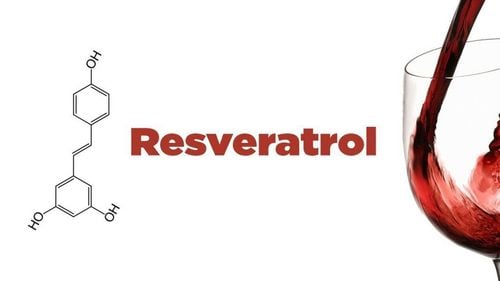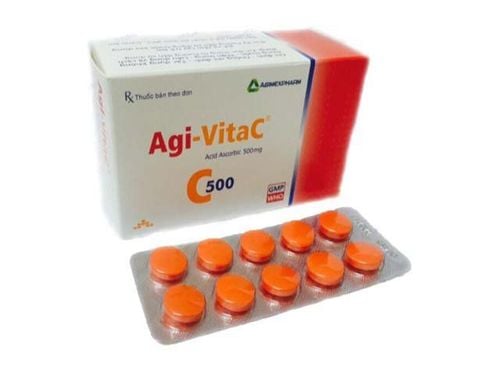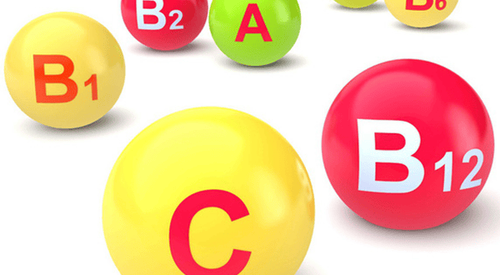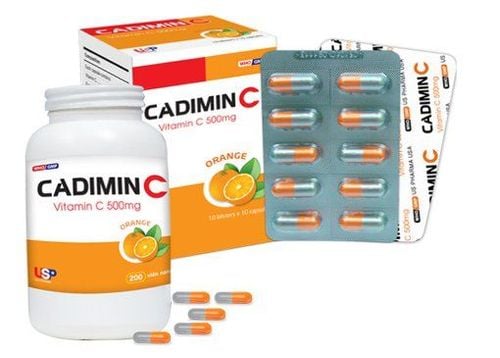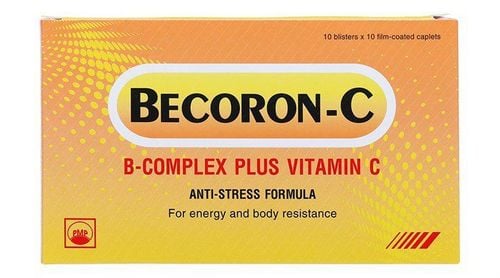This is an automatically translated article.
Vitamin C is water soluble but cannot be synthesized by the human body and is only strictly absorbed through the diet. When vitamin C deficiency, the patient is susceptible to infectious diseases, rickets with hemorrhagic manifestations, hyperkeratosis. However, vitamin C supplementation needs to be properly indicated, dosed and considered in the subjects.
1. Indications of vitamin C
Vitamin C is a water-soluble vitamin, antioxidant and also an essential cofactor for collagen biosynthesis, metabolism of carnitine, catecholamines, absorption of dietary iron.Humans cannot synthesize vitamin C, so it can only be obtained through a diet of fruits and vegetables. Citrus fruits, berries, tomatoes, potatoes, and green leafy vegetables are excellent sources of vitamin C. Although most vitamin C is completely absorbed in the small intestine, this percentage decreases as the concentration in the intestinal fluid increases. The proline radicals on procollagen require vitamin C for hydroxylation, which is necessary for the formation of the triple helix of mature collagen. The lack of a stable triple helix compromises the integrity of the skin, mucous membranes, blood vessels, and bone. Thus, vitamin C deficiency leads to scurvy, which manifests as hemorrhage, hyperkeratosis, and hematological abnormalities.
In addition, vitamin C deficiency often occurs with poor diet or reduced requirements. People at risk of not getting enough vitamins include:
The elderly; People with alcoholism, smoking, anorexia or cancer; People prone to food allergies; Receiving parenteral nutrition is not supplemented with enough nutrients; Those on restrictive diets secondary to inflammatory bowel disease, gastrointestinal reflux disease, or Whipple's disease; Are taking medications such as Aspirin, Indomethacin, birth control pills, Tetracycline and Corticosteroids; People with kidney failure, due to water-soluble vitamin C during dialysis; People with complications of interleukin-2 treatment for metastatic renal cell carcinoma; Receive a liver transplant. In addition, the daily vitamin C requirement is increased in patients with conditions such as gingivitis, asthma, glaucoma, collagen disorders, heatstroke, arthritis, infections and chronic diseases. Vascular disorders, burns and delayed wound healing are the causes of increased daily vitamin C intake.

Vitamin C là một loại vitamin hòa tan trong nước
2. How to supplement vitamin C like?
Vitamin C is usually given orally, intramuscularly, intravenously, or subcutaneously when malabsorption is suspected. For intravenous administration, adverse reactions should be minimized by diluting the drug with normal saline or glucose solutions.The average adult dose of vitamin C supplements is 70 to 150 mg per day; increase dose to 300 mg to 1 g daily in scurvy.
3. Side effects when supplementing with vitamin C
Side effects of vitamin C supplements include headache, flushing, nausea or vomiting, and dizziness. In addition, there are reports of migraine with a daily vitamin C dose of 6 g.
A significant amount of vitamin C can increase the risk of kidney stones, increase uric acid and oxalate because it will acidify the urine.
4. Who shouldn't take vitamin C? Vitamin C supplementation is contraindicated in blood disorders such as Thalassemia, G6PD deficiency, sickle cell disease and hemoglobin. Avoid taking supplements just before or after angioplasty. Diabetics should take vitamin C supplements carefully because the drug will raise blood sugar levels. Vitamin C should be used with caution in oxalate nephropathy or nephrolithiasis because acidification by ascorbic acid increases the likelihood of precipitation of cysteine, urate and oxalate stones.

Các tác dụng phụ khi bổ sung vitamin C bao gồm nhức đầu, đỏ bừng, buồn nôn hoặc nôn và chóng mặt
5. Possible drug interactions when taking vitamin C
Patients who are being treated with any of the following medicines should also not take vitamin C :
Aspirin and non-steroidal anti-inflammatory drugs (NSAIDs): Both aspirin and NSAIDs can reduce the amount of vitamin C in the body. because they lose a lot of vitamins in the urine. In addition, high doses of vitamin C can cause these drugs to stay in the body longer, increasing blood levels. Some early research suggests that vitamin C might help protect against the stomach upset that aspirin and NSAIDs can cause. If you regularly take Aspirin or an NSAID, check with your doctor before taking more than the recommended daily amount of vitamin c. Acetaminophen: High doses of vitamin C can decrease the amount of Acetaminophen in the urine, which can cause blood levels of the drug to rise. Aluminum-containing antacids: Vitamin C can increase the amount of aluminum the body absorbs, which could make the side effects of these medicines worse. Sedatives: Sedatives can reduce the effects of vitamin C. These drugs include Phenobarbital, Pentobarbital, and Seconobarbital. Chemotherapy drugs: As an antioxidant, vitamin C can interfere with the effects of some chemotherapy drugs. However, some researchers speculate that vitamin C may make chemotherapy more effective. Nitrate drugs for heart disease: The combination of vitamin C with Nitroglycerin, Isosorbide dinitrate, or Isosorbide mononitrate will decrease the tolerability of the drugs. If taking nitrates, ask your doctor about vitamin C supplements. Oral contraceptives and hormone replacement therapy: Vitamin C can cause an increase in estrogen levels when taken with these medicines. , especially if you have a vitamin C deficiency from the start and start taking supplements. Oral estrogen can also decrease the effects of vitamin C in the body. Protease Inhibitors: Vitamin C seems to decrease levels of Indinavir, a medicine used to treat HIV and AIDS. Tetracycline: Some evidence suggests that taking vitamin C with the antibiotic tetracycline may increase levels of this drug; At the same time, can also reduce the effect of vitamin C in the body. Warfarin (Coumadin): There have been some reports of vitamin C interfering with the effectiveness of this blood-thinning drug. Vitamin C is a familiar ingredient in multivitamin tablets or supplements. Unless deficient, vitamin C supplementation is best through a healthy diet that includes fresh fruits and vegetables. Overuse or abuse can cause dangerous side effects, especially those who should not take vitamin C because of the risk of drug interactions being used to treat other diseases.
Please dial HOTLINE for more information or register for an appointment HERE. Download MyVinmec app to make appointments faster and to manage your bookings easily.




